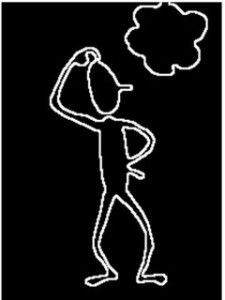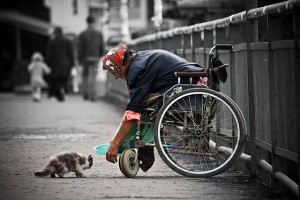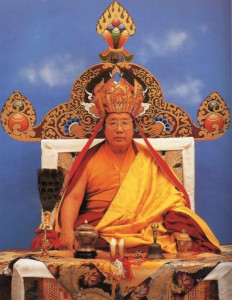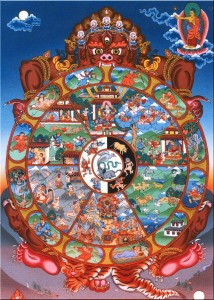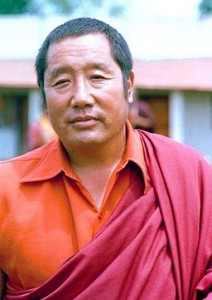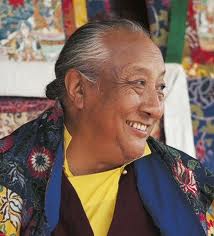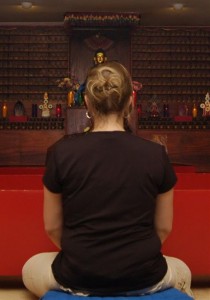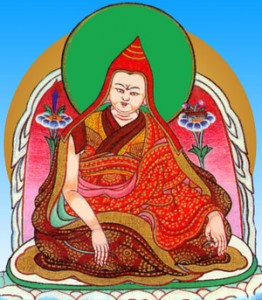The following is an excerpt from a teaching by Jetsunma Ahkon Lhamo called “Why P’howa?”
Even though we may have practiced some preliminary practice and received some preliminary teaching, still the delusion hangs on. One of the things that is characteristic of samsaric beings or beings that are caught in the wheel of death and rebirth—that’s everyone here—is that samsaric beings tend to kind of fall into a stupor. A stupor. And we fall into a stupor about every, oh, 30 seconds or so. We can be temporarily reminded, and those of you who are practicing Ngöndro, which are actually those very preliminary teachings that we are going to discuss today, will notice that you can practice Ngöndro, meaning that you can read those lines, turning the mind towards Dharma, reading them oh so carefully. What happens here is that repeatedly we are falling into the same stupor. We are just losing it. We just constantly lose it.
If I were to say to you now, O.K., you’ve finished your preliminary practice and you’ve accomplished your Ngöndro for today, so now we are going to go into Phowa practice, you have to organize your mind and your thinking and direct yourself so that you understand very clearly why we should practice, how Phowa is suitable for you and why it is necessary to put so much effort into this one particular practice. The student who is not reminded, in the traditional way, how to approach these teachings, even though they have just been practicing their Ngöndro, will literally forget. Or they will have that other wonderful remarkable trait that samsaric beings have which is to be able to literally repeat the text back to the teacher and say, this is why, du du du du du du, dudu dudu dudu, and they give you back exactly what they have just read. But nothing is happening. Those words are somehow coming out the mouth, not going in the brain. They are simply not being internalized, and that is another kind of stupor that we fall into.
Therefore, in order to have the best result from our teaching, from our Phowa retreat this week and in order to keep in tune and in harmony with the way the teachings are traditionally taught, we will cover and re-cover some of the most fundamental traditional teachings in order to prepare ourselves; but we will do this in a condensed form and almost kind of conversationally because I have found that westerners who have the intention of absorbing a practice in order to utilize it in their everyday lives, in order to mesh it into their everyday lives, respond better to being taught conversationally, to being spoken to in a way that they are normally spoken to, not in a strange and archaic way. Then they are able to knit things together much better. So that’s the way that we will approach our teaching for today and it will be useful for those of you who are not intending to pursue Phowa.
For those of you who are curious about what Phowa may be, Phowa is actually the science and the how-to, the traditional Buddhist teaching, the Buddhist view, on death and dying. It is literally how to die. The Vajrayana path, which is the path that we are on, is a subsection of the Mahayana path which is one of the many ways in which the Buddha has taught It is considered that our path, the Vajrayana path, is the only way that one achieve liberation within one lifetime. Using any of the Buddhist teachings, one can surely attain liberation, but in Vajrayana one can attain liberation within the course of one lifetime.
Copyright © Jetsunma Ahkon Norbu Lhamo All rights reserved
